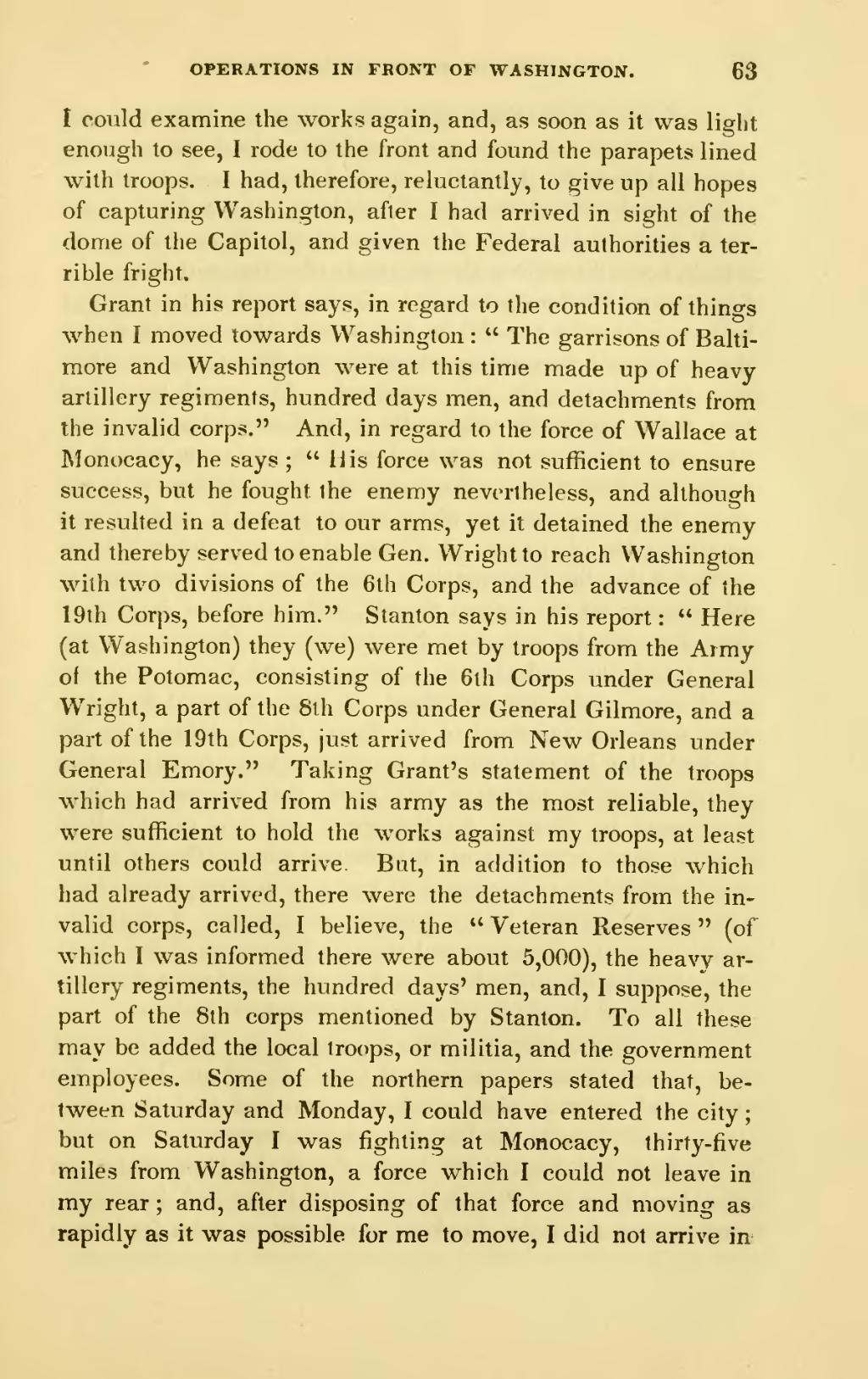I could examine the works again, and, as soon as it was light
enough to see, I rode to the front and found the parapets lined
with troops. I had, therefore, reluctantly, to give up all hopes
of capturing Washington, after I had arrived in sight of the
dome of the Capitol, and given the Federal authorities a terrible fright.
Grant in his report says, in regard to the condition of things when I moved towards Washington: "The garrisons of Baltimore and Washington were at this time made up of heavy artillery regiments, hundred days men, and detachments from the invalid corps." And, in regard to the force of Wallace at Monocacy, he says; "His force was not sufficient to ensure success, but he fought the enemy nevertheless, and although it resulted in a defeat to our arms, yet it detained the enemy and thereby served to enable Gen. Wright to reach Washington with two divisions of the 6th Corps, and the advance of the 19th Corps, before him." Stanton says in his report: "Here (at Washington) they (we) were met by troops from the Army of the Potomac, consisting of the 6th Corps under General Wright, a part of the 8th Corps under General Gilmore, and a part of the 19th Corps, just arrived from New Orleans under General Emory." Taking Grant's statement of the troops which had arrived from his army as the most reliable, they were sufficient to hold the works against my troops, at least until others could arrive. But, in addition to those which had already arrived, there were the detachments from the invalid corps, called, I believe, the "Veteran Reserves" (of which I was informed there were about 5,000), the heavy artillery regiments, the hundred days' men, and, I suppose, the part of the 8th corps mentioned by Stanton. To all these may be added the local troops, or militia, and the government employees. Some of the northern papers stated that, between Saturday and Monday, I could have entered the city; but on Saturday I was fighting at Monocacy, thirty-five miles from Washington, a force which I could not leave in my rear; and, after disposing of that force and moving as rapidly as it was possible for me to move, I did not arrive in
